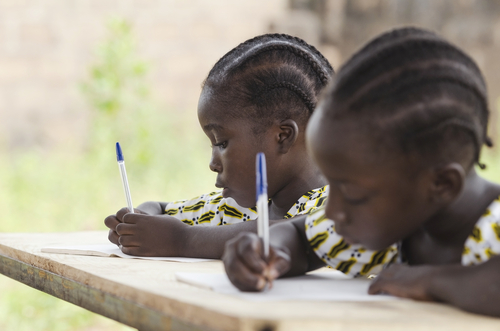Teaching is a wonderful talent that one can only get better at the more they practice. Some people have a natural gift for teaching as if they are born to educate the world. However, the teacher is only a part of the equation in this formula. No matter how great someone is, often they can not control how ideal of a learner their student will be. This is the true challenge of what separates a good teacher from a great one in how they help change their pupil’s lives for the better. Education, learning and children is a wonderful sight to behold, and one our country needs so badly to succeed in the future.

Teaching Brings People Together
Teachers can benefit immensely from dealing with a wide variety of students with diverse backgrounds and cultures. The more one engages with someone that is not from a similar background the more two people can learn from their differences. Many teachers do not enjoy going outside of their comfort range of their particular students’ given age group though. Many teachers who prefer to teach higher education may not have any interest in dealing directly with the youth, and if so only at the later teenage years. Children strangely enough can often be the very mature, insightful, and aware. But dealing with children requires many additional demands of the teacher, some for obvious reasons, but others often are those that can take one by surprise!
When addressing a class of children, one must begin the day with their highest standards of uplifting spirits, presentation, politeness, understanding, and the very important art of patience. Sometimes the process of learning for a child is radically more involved than it is for an adult. Concepts are very new to them on many more fundamental stages than just a simple point being driven, more so the younger they are. It is easy for an adult to take for granted the long duration of familiarity with the world a child has yet to grasp. What may seem like common knowledge to the teacher can be a brand new idea to a little person, therefore it is important to not race through information but rather to walk them through with a fair amount of context to the idea being conveyed. It is also extremely important that the teacher not only be mindful of their methods but that they not forget their role in regards to the children. Children are fun and engaging when interested and can easily become excited. If the teacher is not careful to assert a fair degree of control, they can lose sight of the fact they are students being taught and assume their own control over the class and turn the lesson into a spiraling playground.
Know When & Where To Take Breaks
One strong connection that teaching has with learning, is they are both all about process. Our brain operate more or less in many ways like a computer does in the actual method that the information is being taken in. And like how a computer works, when receiving information, the brain needs time to file these ideas away to make sense of them. Many people in their walks of life do a variety of exercises and activities to overcome stress and emotional strain, being bombarded by over stimulus is not something one just grows out of. For children every day of their lives is a new adventure because very little has become routine yet. Considering that combined with the idea of learning on top of these still developing young minds, we can understand why patience is one of the teacher’s major trials when dealing one on one with our future. So it is key to know when and where to take breaks, and how to guide the children in and out of their down time. Even though they may have recess or lunch or even a nap, they will still be processing the information that they just learned as it begins to enrich their interests and imaginations. This is why it is imperative to deliver the information in the most communicative way to their understanding, for these concepts are the building blocks for life and further understanding of the world upon which they will use as a basis for the rest of their lives!
Think Like A Child
If you can use your imagination yourself and think like a child, it can be very effective for you as the teacher to get on their level. If you could picture a class like a flowing river, you can imagine that after a break that the current may have a slightly different flow of pace. Not only is it important to know when to take a step back from learning to prevent emotional build up from too much knowledge too fast or for too long, it is also good to know how to ease a class back into the mode of being quiet and listening. This often can be challenged by specific students who are particularly restless and desire nothing more but to stay at recess even though they have left the playground. Restless children with active imaginations can often feel targeted and singled out if scolded, or they can possibly feed off of the attention if you give it to them. Sometimes it is better to compliment the students who are on their best behavior which gives the class light of an example to follow. Incentives can also be effective so long as one does not start a slippery slope of creating demands for reward. Once a class has settled back in properly, ideally in a fashionable time, one may begin to reengage with the next lesson with a clear focus on the next subjects that are embarked upon.
End The Day Strong
It is said that often the mind remembers the beginning and the end of an experience the most. So just as it is extremely important to start off on your best foot, it is absolutely essential that the day end on the strongest note possible. This is how you will send off the class with their entire day of acquired knowledge. Now they will actually be sent out into the world to contemplate and discuss these topics that they have become enlightened to. You must send them off with confidence, assuring their strengths with praises for their achievements, while reeling them back in as to how this learning comes together with absolute clarity. For it is from this point forward until the next day that they will sit with this knowledge, process and contemplate it in the various different types of ways that children do with their wonder and awe. Not to mention most importantly you yourself as the teacher, if following through with everything in a glorious fashion, will take home the lessons that you have earned for yourself that day. The enrichment of yourself that your class gave back to you from your hard work of shared experience, and together you all will continue to learn and grow.

